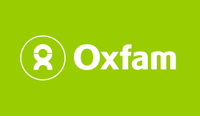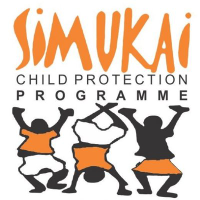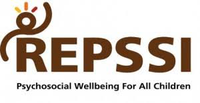Terms of Reference for Linking Muzarabani District (Chadereka, Chiwenga, Dambakurima, Kayirezi Wards Disability data with Geographical data and Meteorological data 1
Job Description
Over the past decade, disasters have increased both in complexity and multiplicity, worsening the
plight of vulnerable communities the world over. Many countries in Southern Africa have devised
coping mechanisms to mitigate the impact, but Zimbabwe, Zambia and Malawi remain susceptible
to disasters. Communities, government, and non-governmental organizations have come up with
different mitigation strategies. A feasibility study conducted from 1 February to 15 April 2022
established gaps in DRR, specifically lack of disability inclusion in the pre-disaster actions. Against
this backdrop, the establishment of inclusive disaster risk reduction systems and inclusive
climate change adaptation strategies is essential. The main objective of this project is therefore
to contribute to reducing the increased risk of persons with disabilities in climate change-related
disasters by strengthening inclusive disaster risk reduction processes and climate change
adaptation processes at regional level, national level and at community level. At community level,
the project capacitates communities to adapt and improve agricultural production through
trainings on demonstration plots, strengthen inclusive community early warning systems and
early action protocols, the project will also promote inclusion of persons with disabilities in local
disaster risk reduction committees among other initiatives. At National level, key actors in
Disaster Risk Reduction and Climate Change Adaptation will be strengthened in their capacities
so that inclusion aspects are considered in policies and legal guidelines. At regional level, through
capacity building of Organisations of Persons with Disabilities (OPDs), further advocacy will be
done to influence regional processes to address inclusion as a cross cutting issue.
Duties and Responsibilities
The project has the following activities:
CBM TOR Template 2022
This consultancy will contribute towards the Activity 3.2.
3. Objective and Intended Use
Activities
1.1. Participation of national and regional OPDs in regional conferences and political processes
(e.g. SADC, COP, GPDRR)
1.2. Promote exchange on inclusive disaster risk reduction (DRR) between governmental and
non-governmental actors in the three countries.
1.3. Strengthening SAFOD's capacity for inclusive DRR and for influencing regional policy
processes in DRR.
1.4. Development of evidence-based best practices from the three target countries
2.1 Mapping of the national situation of persons with disabilities in disaster risk reduction
strategies and mechanisms
2.2 Training and mentoring of national state actors (as duty bearers) on the topic of inclusive
disaster risk reduction.
2.3 Training and mentoring of UN agencies and civil society actors on inclusive disaster risk
reduction.
2.4 Building the advocacy capacity of national OPDs in the three target countries on inclusive
DRR and influencing national policy processes on DRR.
2.5 Support the development of inclusive early warning systems/messages
2.6 Analysis of the possibilities of safety mechanisms, formal and informal (community) safety
nets
3.1 Carrying out Barriers and Enablers Assessments in conjunction with Capacity and
Vulnerability Analysis (CVA)
3.2 Collection of disaggregated data on disability and integration of the data into disaster risk
reduction planning at community level.
3.3 Strengthening the capacity of local disaster risk reduction committees / mechanisms
3.4 Strengthening local OPDs/self-help groups in the field of advocacy/inclusive disaster risk
reduction
3.5 Establish local early warning systems and protocols for early action (community-level
disaster risk reduction plans).
3.6 Raise awareness of inclusive DRR in schools and involve students and young people in
DRR-related activities.
3.7 Support for the establishment of inclusive savings groups (VSLA)
3.8 Capacity building to adapt and improve agricultural production
Qualifications and Experience
Master’s degree or higher academic degree related to Geographical Information Systems,
Geospatial intelligence, Applied Geoinformation Science and Earth Observation, Data
Management, Geography, Surveying or similar field. (at least the Team Manager).
Demonstrated experience in GIS mapping of rural areas, customisation of GIS application and
prior working experience as a GIS analyst.
Knowledge of working with GPS measuring tools and proficiency in using mapping tools.
Proven working experience with NGOs or INGO and the Government sector in the field of GIS,
data management and surveying.
Proven consultancy experience of at least 5 years in GIS, with a record of providing high
quality, creative expert advice
Proven experience in consultancy of projects/programmes by specific donors (BMZ, EU,
DFAD, DFID, etc.).
Good analytical skills, Proven working experience in the field of disability and inclusive
development. A background on child safeguarding/community support systems is an added
value
Knowledge about local culture, policies, and laws to understand the reality for persons with
disabilities in respective country.
Technical expertise in the disability programming is an added advantage.
Working knowledge in the Country context is necessary.
Proactivity and persistence will be required.
Proficiency in written and spoken English and corresponding country language(s) essential.
Similar Listings

Baseline Assessment for the project, “Integrated Emergency Response for El Niño Drought Affected Communities in Zimbabwe,
Oxfam — Harare

Terms Of Reference
Oxfam — Harare

Terms Of Reference
Oxfam — Harare

CALL FOR EXPRESSION OF INTEREST FOR CONSULTANCY SERVICES FOR THE DESIGN AND IMPLEMENTATION OF A CAPACITY DEVELOPMENT PROGRAM FOR SIMUKAI CHILD PROTECTION PROGRAMME
Simukai Child Protection Program — Harare

Location: Harare
Company: Regional Psychosocial Support Initiative (REPSSI)
Expiry Date: 2024-05-06 00:00:00
